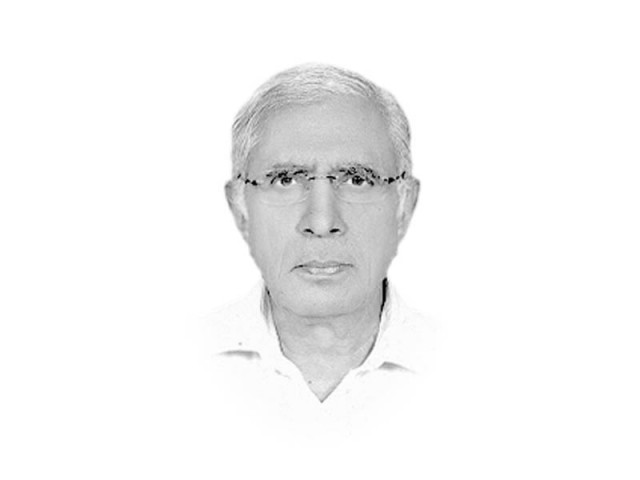The ready source of terror financing
The expanding sea of the black economy continues to offer the ‘misled’ a ready source of terror-financing

The writer served as Executive Editor of The Express Tribune from 2009 to 2014
It is not very clear how far we have succeeded in curtailing terror financing since the launch of Operation Zarb-e-Azb in June 2014. The decreasing number of terror incidents inside the country over the last 16 months indicates that the menace has been brought under control to some extent. However, the expanding sea of the black economy, which is said to have surpassed the size of our formal economy by miles, continues to offer the ‘misled’ a ready source of terror financing. The rampant financial corruption that has been going on since ages has, so far, nullified all attempts to keep the flood of the black economy from getting out of control. Making things even more impossible is the raging culture of tax evasion and avoidance, where income from agriculture, which makes up 21 per cent of the GDP, is not taxed at all. This has given rise to a thriving money-laundering service in Pakistan.
It was against this mushrooming menace that the Anti-Money Laundering (AML) Act of 2010 was found to be too inadequate to serve the purpose. It was, therefore, ‘suitably’ amended by the National Assembly and sent to the Senate where it seems to have been stuck because some of its provisions seem unacceptable to the opposition senators.
For the benefit of our legislators, it would not be out of place to recall here international efforts to curb money laundering. In September 2003 and December 2005, the UN Convention against Transnational Organised Crime and the UN Convention against Corruption, respectively, came into force. Both instruments widened the scope of the money-laundering offence by stating that it should not only apply to the proceeds of illicit drug trafficking, but also to those of all serious crimes, which surely include tax evasion and avoidance. Both Conventions urge states to create a comprehensive domestic supervisory and a regulatory regime for banks and non-bank financial institutions, including natural and legal persons, as well as any entities particularly susceptible to being involved in a money-laundering scheme. The Conventions also call for the establishment of Financial Intelligence Units.
Meanwhile, the International Convention for the Suppression of the Financing of Terrorism came into force in April 2002. It requires member states to take measures to protect their financial systems from being misused by persons planning or engaged in terrorist activities. In September 2001, the UN Security Council adopted Resolution 1373, through which it imposed certain obligations on member states, such as the prevention and the suppression of the financing of terrorist acts, the criminalisation of terrorism-related activities and of the provision of assistance to carry out those acts, the denial of funding and providing a safe haven to terrorists and the exchange of information to prevent the commission of terrorist acts. In the same resolution, the Council also established the Counter-Terrorism Committee to monitor the resolution’s implementation.
In April 1990, the Financial Action Task Force on Money Laundering (FATF) issued a set of 40 recommendations for improving national legal systems, enhancing the role of the financial sector and intensifying cooperation in the fight against money laundering. The FATF extended its mandate in October 2001 to cover the fight against terrorist financing and issued eight special recommendations on combating the financing of terrorism. A ninth special recommendation was adopted in October 2004. Let us check our amended AML Bill against the 40 recommendations of the FATF and the nine special recommendations on terrorist financing to see if it provides the required comprehensive set of measures for an effective legal and institutional regime against money laundering and the financing of terrorism.
Published in The Express Tribune, October 28th, 2015.
Like Opinion & Editorial on Facebook, follow @ETOpEd on Twitter to receive all updates on all our daily pieces.

















COMMENTS
Comments are moderated and generally will be posted if they are on-topic and not abusive.
For more information, please see our Comments FAQ